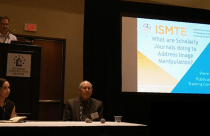Enago Releases Global Survey Report on the Future of Research Education in Universities

New York, USA: Enago, a global leader in editing and publication support services, recently conducted a comprehensive global survey on the future of research education in the backdrop of COVID-19. This broad survey is the first part in a series of Research Risk Assessment surveys and represents millions of students and thousands of faculty members. It was conducted over a period of 8 weeks between May and June 2020. There were a total of 108 universities spread across 38 countries from Europe, Asia, South America, North America, Middle East, Australia/Oceania, and Africa that participated in the survey making it one of the most comprehensive surveys on universities ever conducted.
Key Highlights of the Report
One of the primary ways universities have adapted themselves to the “new normal” is by migrating to online learning and focusing on research writing rather than field activities. The transition to online classrooms ‒ the need of the hour ‒ went smoothly for 28% of the universities, while 15% found the transformation complex. Although most universities quickly adapted to the online setup, several others are yet to make the transition.
Even during the strict lockdown measures imposed in many countries across the globe, research work has not stopped, however, 35% of the respondents reported a fall in their research output while 26% reported no change. Unsurprisingly, 61% of the universities have researchers actively working towards the ongoing crisis studies. Universities have preferred seeking more local external support and collaborations than international ones. On the budget front, over 35% of the universities underwent cuts, while 26% maintained their standard budget. Overall, 54% of the universities have not had substantial budget cuts – definitely a positive finding.
Remarkably, 48% of the universities have already setup e-learning systems for their researchers and 36% are in the preliminary stages. More than half (56%) of the universities are actively searching for innovative solutions for engaging and developing their researchers’ skill set – the majority of these universities will require guidance in setting up these e-learning platforms. Although 36% of the universities are not looking for e-learning systems currently, they will surely require help in identifying the right platforms and setting it up in the coming months. When it comes to AI-based solutions, 41% of the universities have not explored them in their operational workflow, while around 25% are already using these solutions extensively. The results highlight that almost 76% of universities have yet to fully implement technologies such as AI in their workflow.
The key learning from this survey is that a significant “paradigm shift” has occurred during the first half of 2020. A switch to online classrooms and e-learning systems is widespread, adverse impact on research budgets is evident, overall uncertainty has risen, and a segment of universities have not found it easy to transition. However, the visible silver lining of the unprecedented global events is that the broad changes are likely to result in a more dynamic and progressive future of research education in universities in the medium to long term.
We plan to conduct more such research risk assessment surveys and will keep our readers posted on all developments. For any survey collaboration or partnership inquiries, please contact us at academy@enago.com.
To read the complete 15-page report, please visit https://www.enago.com/academy/global_survey_report_2020.htm









